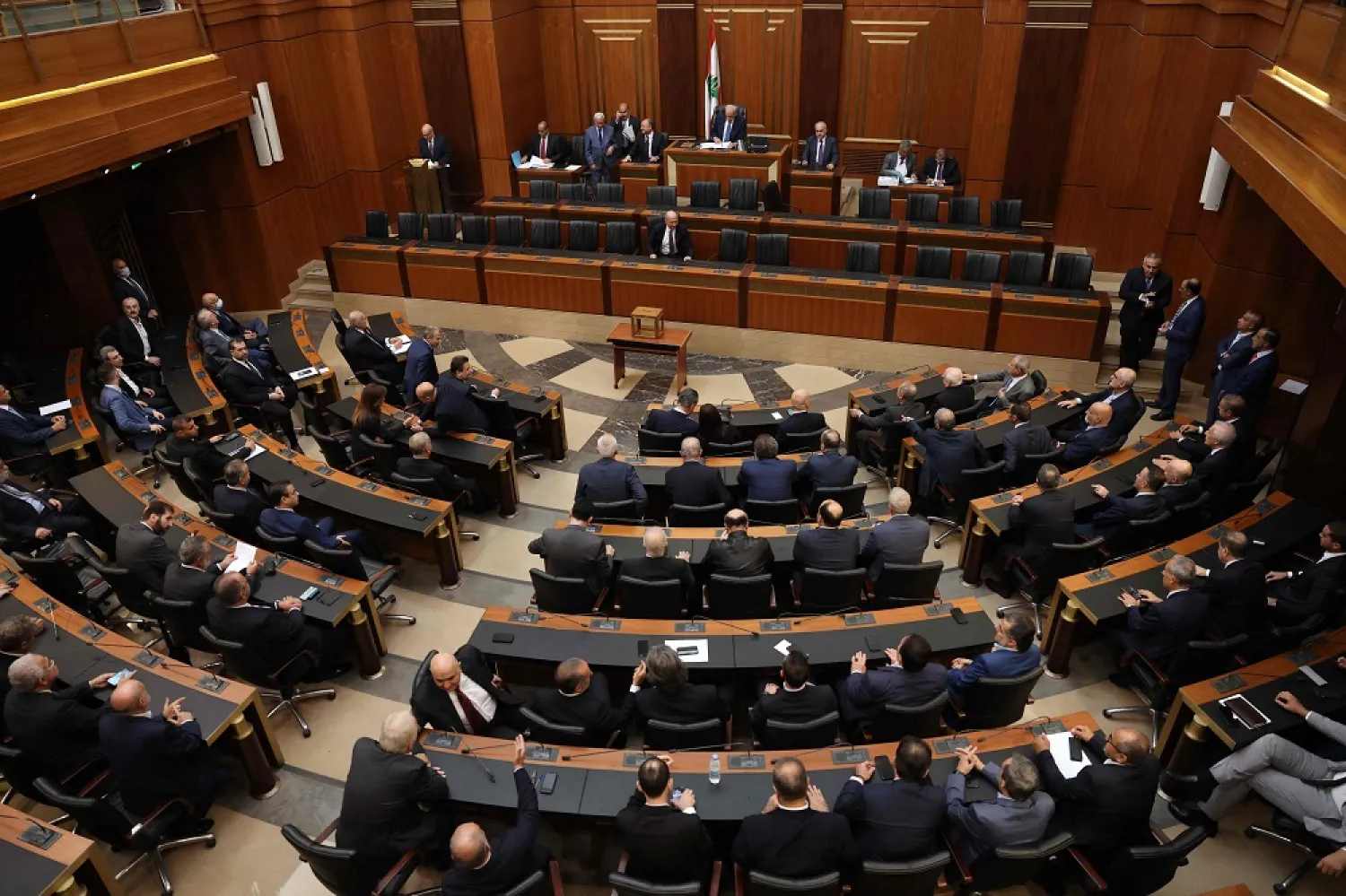Outgoing Lebanese President Michel Aoun stirred debate on Thursday when he said he may approve the resignation of the government should a new one not be formed, days before his term as president ends.
The government usually assumes the duties of the president in case of a presidential vacuum.
Aoun’s term ends on Monday and it is unlikely that a successor will be elected on time.
Caretaker Prime Minister Najib Mikati has been unable to form a government, months since his appointment, due to disputes with Aoun.
Among the disputes, was a debate over whether the caretaker government can assume the role of the executive authority during presidential vacuum. The cabinet has been acting in a caretaker capacity since parliamentary elections that were held in May.
Aoun on Friday accused Mikati and his team of “lacking the will to form a government.”
He charged that Mikati has met the demands of all parties, movements and political blocs, except for the Free Patriotic Movement (FPM) that was founded by Aoun and is now headed by his son-in-law MP Gebran Bassil.
The FPM has been arguing that the caretaker government did not receive the new parliament’s vote of confidence, but rather the old one, therefore, rendering it “unconstitutional.”
Commenting on the legality of his move to accept the resignation of the caretaker government in the absence of a replacement, Aoun remarked that the issue is not addressed in any constitutional texts, but it is simply related to political norms.
Norms, he said, can be violated.
Lawyer and former minister Rashid Derbas criticized Aoun’s warning, saying that the caretaker government had not even submitted its resignation for him to even consider approving or rejecting it.
The government is considered resigned as soon as the new parliament is formed. The president has no power over this resignation, he added.
Moreover, he said Aoun may deliberately create vacuum before leaving his post.
Lebanon will be plunged in presidential and government vacuum on November 1.
Derbas said the solution to the vacuum lies in the constitution and its grants the government the right to assume the duties of president in case of a vacuum.
In remarks to Asharq Al-Awsat, Derbas said the caretaker government has constitutional authority to replace the president, but there are some privileges that are solely reserved to the president even if the government is constitutional and enjoys the parliament’s support.
Derbas said Mikati was not responsible for obstructing the formation of a new government and therefore, not responsible for leading the country to vacuum.
Rather he pinned the blame on the FPM and its allies. He also blamed them for the presidential vacuum, saying they have been submitting blank votes during the elections.
Lebanon has held four rounds of presidential elections, none of which succeeded in electing a new head of state.
Meanwhile, Bassil warned against the government assuming the role of the president.
“We cannot have an unconstitutional and illegal government leading the country during vacuum,” he said after meeting with Maronite Patriarch Beshara al-Rai at Bkirki.
“The idea of placing the country in the hands of a caretaker government is disastrous and will lead to constitutional and all forms of chaos,” he added.
Moreover, he noted that Mikati would be signaling that he does not want to form a new government if he agrees for his caretaker cabinet to assume the duties of the president.









